Sri Lanka crisis: President Rajapaksa flees, angry protesters storm PM's office
Sri Lanka's embattled president Gotabaya Rajapaksa has fled the crisis-hit country on a military jet to the Maldives amid mass protests over the island's worsening economic crisis, officials confirmed on Wednesday.
The country's air force confirmed that the 73-year-old veteran politician fled to the Maldives with his wife and two security officials, even as angry protesters stormed the office of Prime Minister Ranil Wickremesinghe, demanding his ouster.
Rajapaksa's departure, after months of protests, marks the end of a dynasty that dominated Sri Lanka's politics for the past two decades.
Wickremesinghe had earlier on Wednesday declared a state of emergency and regional curfew in the restive western province, and Rajapaksa was also expected to tender his resignation on Wednesday.
Sri Lankans, who have been grappling with a shortage of food, fuel, and power for months, learned that the runaway president had told the parliament speaker Mahinda Yapa Abeywardena to announce that he would resign on Wednesday and that Wickremesinghe should be the interim president.
“The president got in touch with me over the phone and said that he will ensure that his resignation letter will be received by me today,” said Abeywardena. “I appeal to the public to have confidence in the parliamentary process we have outlined to appoint a new president on the 20th and be peaceful.”
The island of 22 million people is struggling with its worst economic crisis since independence in 1948 amid a severe foreign exchange shortage that has limited essential imports of fuel, food, and medicine.
Soaring inflation, at a record 54.6 percent in June and expected to hit 70 percent in the coming months, has heaped hardship on the population.
Sri Lankan leaders have for months been seeking a $3-billion bailout from the US-dominated International Monetary Fund and a restructuring of some foreign debt, but that bid has gone unanswered.
Discontent has worsened in recent weeks as the cash-strapped country stopped receiving fuel shipments, forcing school closures and the rationing of petrol and diesel for essential services.
Rajapaksa had been in hiding after angry crowds of protesters stormed his private residence in the capital Colombo and set it ablaze on Saturday.
Following the president's flight and protesters’ raid on Wickremesinghe’s office, the prime minister’s office declared a state of emergency and a curfew with immediate effect. However, the orders were soon canceled with the office saying that the moves would be announced again later.
“Protesters have no reason to storm the prime minister’s office. They want to stop the parliamentary process. But we must respect the Constitution. So security forces have advised me to impose an emergency and a curfew. I’m working to do that,” Wickremesinghe said in a statement.
Although police outside the premier’s office fired several rounds of tear gas with a helicopter hovering overhead, undeterred protesters finally managed to surge into the compound.
An unnamed government source and a person close to Rajapaksa told Reuters that the president was in Male, the capital of the Maldives. However, he would most likely proceed to another Asian country from there, the government source added.
Protest leaders believe Wickremesinghe is allied to Rajapaksa and have warned of a “decisive fight” if the prime minister does not resign.
“We are strongly against the Gota-Ranil government. Both have to go,” said Buddhi Prabodha Karunaratne, one of the organizers of recent protests.
Rajapaksa was blocked from departing on Monday night after refusing to join a public line at the Bandaranaike International Airport to have his passport checked by immigration. Airport staff reportedly blocked him and his family from using a VIP lane to board a flight to the United Arab Emirates (UAE).
Rajapaksa had been a popular figure among Sri Lanka's powerful Sinhala Buddhist majority, who credit him with ending the country's 26-year-long civil war in 2009. However, as the tourism industry, the island nation's economic mainstay, declined due to the global COVID pandemic, his popularity waned.
An interim all-party unity government is expected to take over after Rajapaksa's much-anticipated resignation. Sajith Premadasa, the leader of the largest opposition party Samagi Jana Balawegaya, has said he would put himself forward for president.
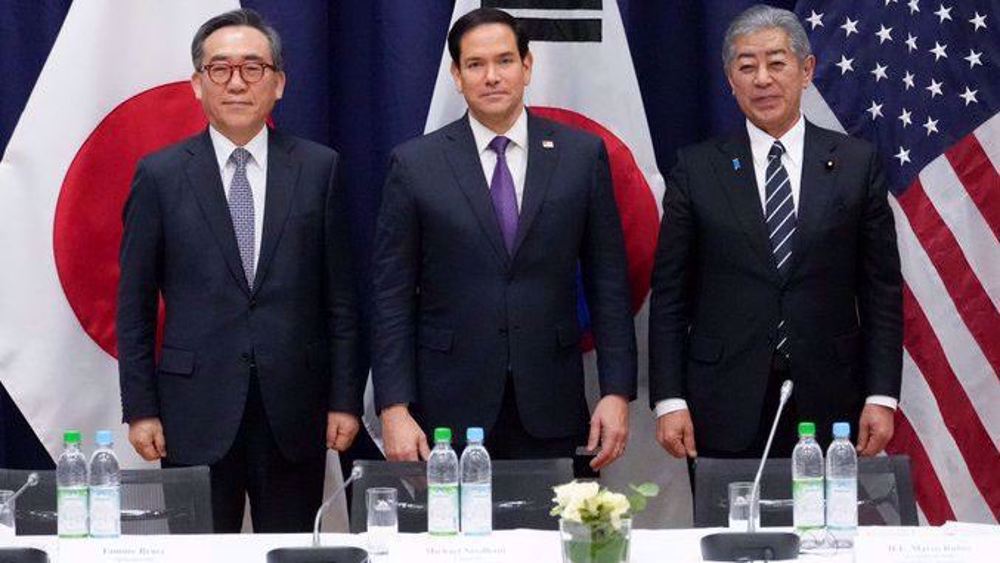
US, Japan, S Korea renew calls for ‘complete denuclearisation’ of North Korea
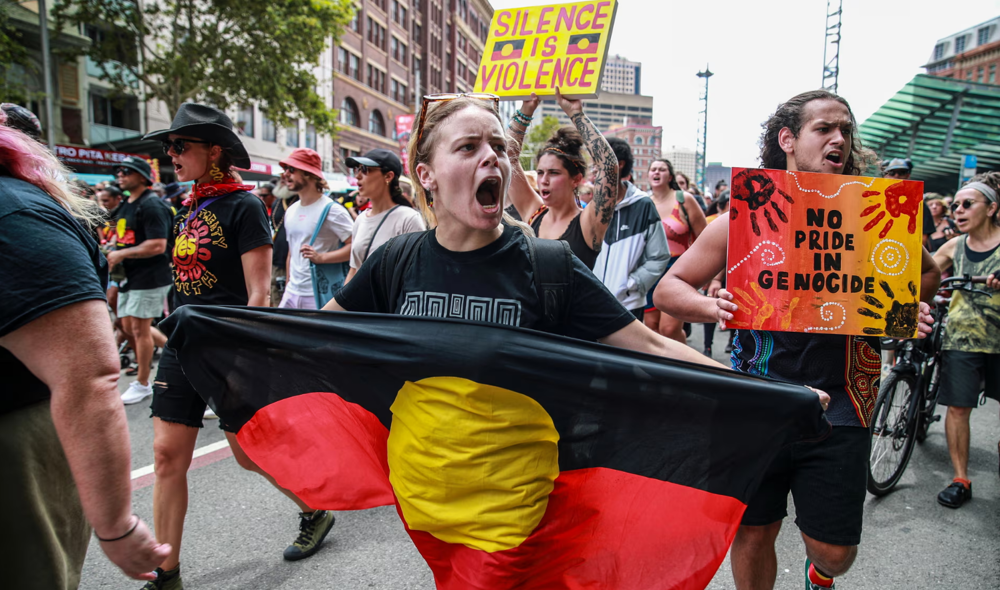
Indigenous rights activists rally on Australia Day to protest British colonization legacy
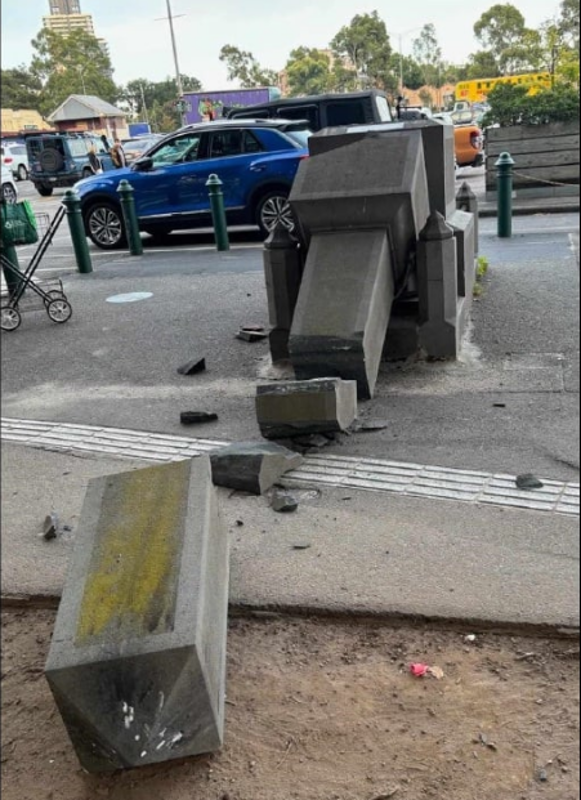
Colonialist’s monument toppled in Melbourne ahead of Australia Day
VIDEO | Press TV's news headlines
Iran ready to strengthen ties with UAE based on ‘mutual interests’: Deputy FM
VIDEO | A slap in the face of imperialism
Iran remains steadfast in its ‘principled positions,’ says Foreign Ministry
VIDEO | Holding on to hope: Gazans welcome Ramadan despite hardship
VIDEO | Kirk, veteran war journalist
VIDEO | 'Fras Market turned into wasteland'
Trump, Vance rebuke Zelensky in heated Oval Office confrontation





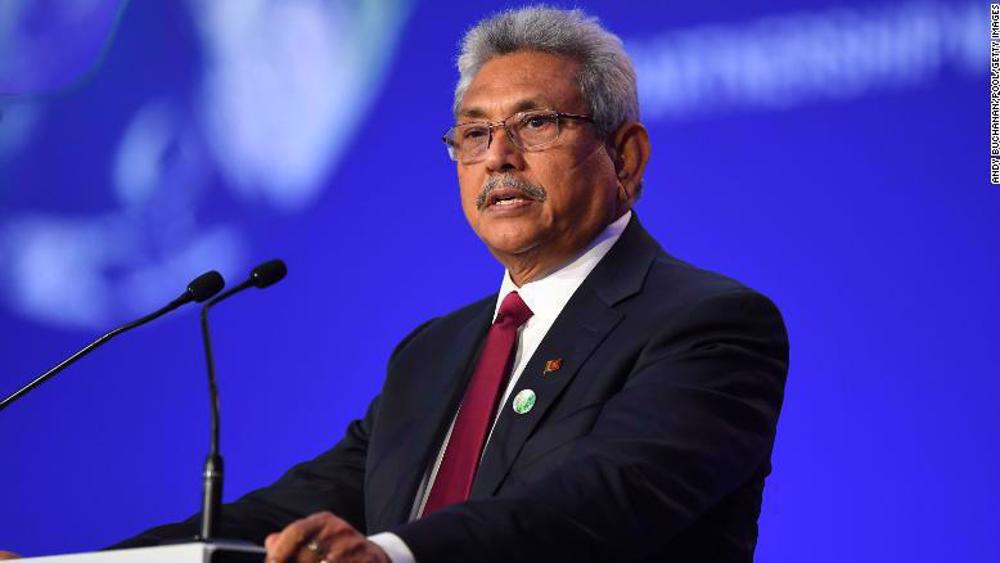
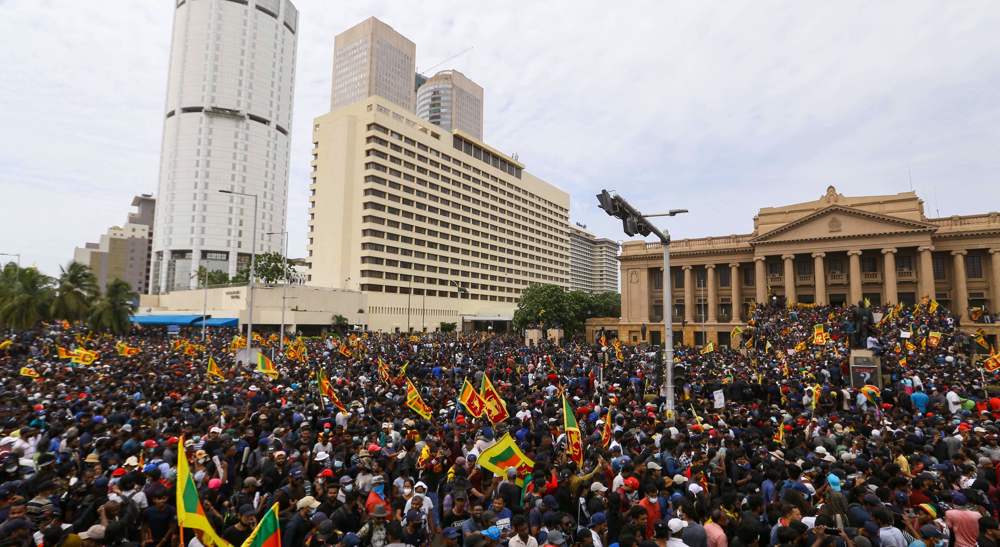
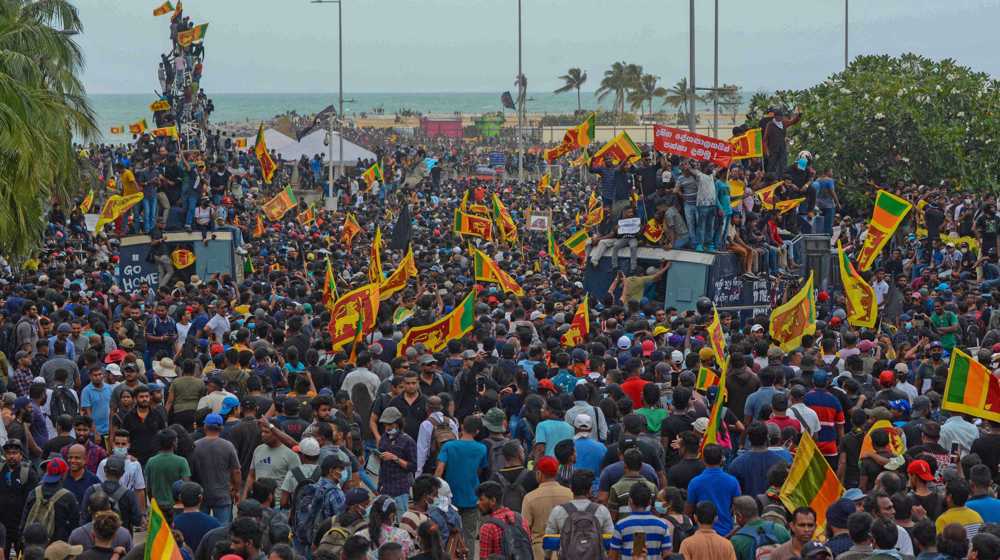

 This makes it easy to access the Press TV website
This makes it easy to access the Press TV website